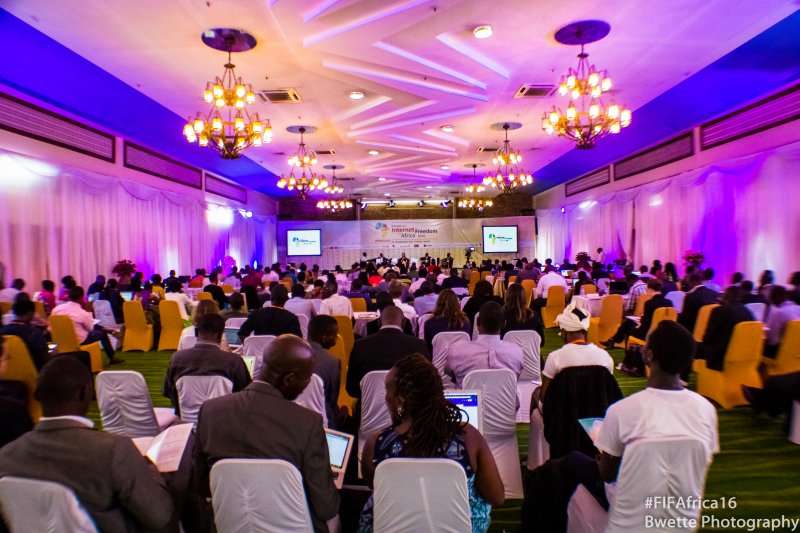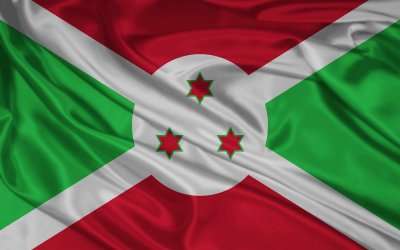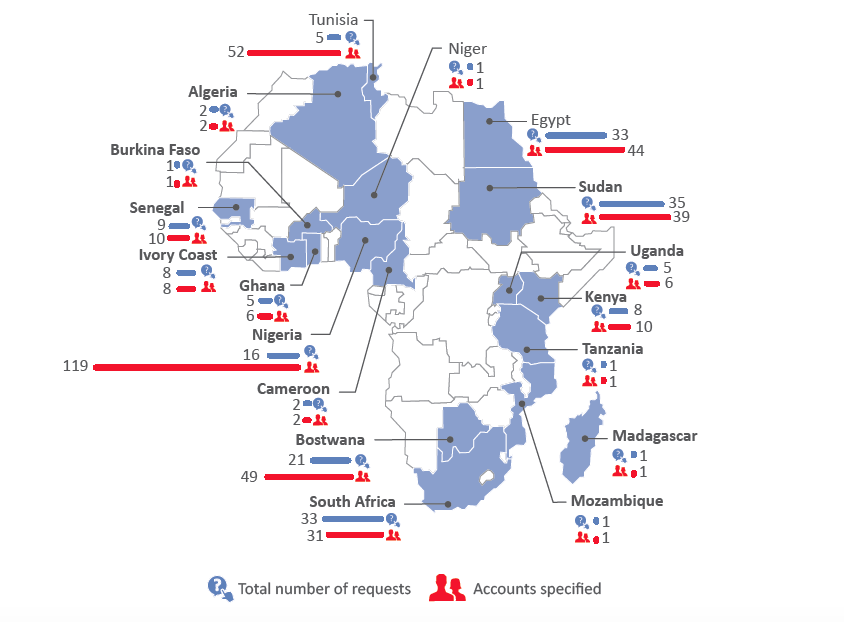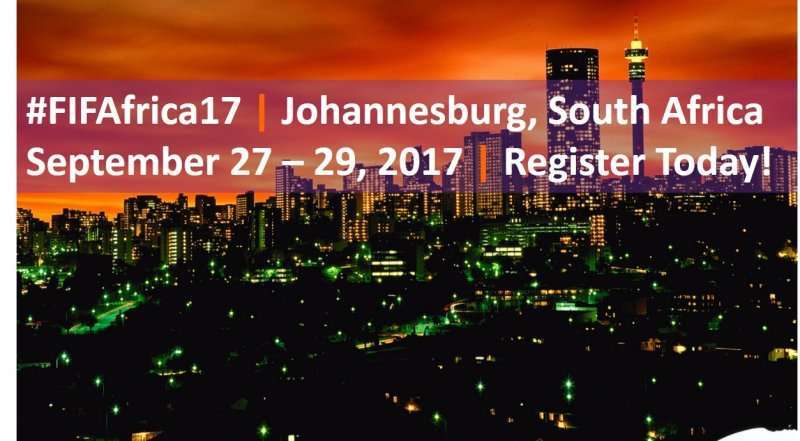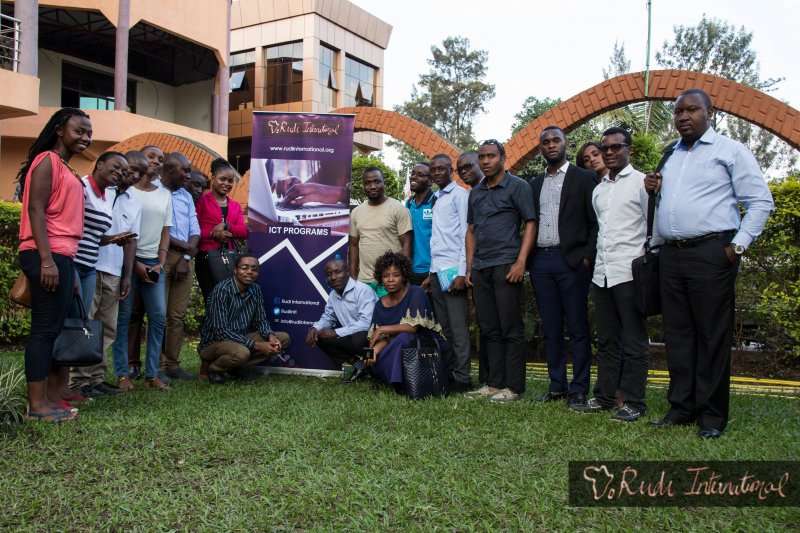FIFAfrica17 |
The Forum on Internet Freedom in Africa (FIFAfrica) 2017 is now just a few weeks away and indeed, we are working to ensure the delivery of an insightful, engaging Forum. As such, below are some updates and key information to facilitate your planning and participation at the Forum.
Venue
The Forum will be hosted at Sunnyside Park Hotel, located on Princess of Wales Terrace & Carse O’Gowrie Road, Parktown, Johannesburg, South Africa.
Registration and travel support
Thank you for indicating interest to attend the Forum. We are really excited about the diversity and profile of those expected to be in attendance. The deadline for applications for travel support was August 30, 2017 and we received over 200 applications for travel support to participate at FIFAfrica. Review of applications for travel support is ongoing and successful applicants are being contacted directly on a rolling basis. All successful travel support applicants will have received direct communication by September 8, 2017.
Travel Advisory
A travel note is available to enable planning for your attendance of the Forum. For self sponsored participants that require a visa letter, please email [email protected] and copy [email protected].
Session Proposals
We have received many insightful session proposals! Thank you for the numerous submissions. The session review committee worked meticulously to go through each and every submission made and as such, finalisation took slightly longer than anticipated, our apologies for the delay. Below are the successful proposals that have been integrated into the agenda. Please note that some session proposers have been shortlisted as panelists on different sessions after each of their proposals was found to be in resonance with the FIFAfrica themes and integrated into the session that made it to the agenda. We will be reaching out to those individuals directly and also sharing the working draft of the agenda in coming days.
Successful Panel Discussion Submissions
Catalysts for collaboration in strategic digital rights litigation – Nani Jansen Reventlow, Berkman Klein Centre for Internet and Society at Harvard Law School
Innovation and Security in Somali Territories – Nicole Stremlau, University of Johannesburg/University of Oxford
Elections and Technology – Arthur Gwagwa and Moses Karanja, CIPIT (Kenya)
Freedom Online Coalition Meeting – US Department of State and Global Partners Digital (GDP)
Advancing a gender-sensitive approach to ICT Policy and decision making – Moses Owiny, Women of Uganda Network (WOUGNET)
Building research capacity in internet measurements, cyber policy and digital rights – Chenai Chair, Research ICT Africa and Amreesh Phokeer Afrinic
Women’s safety online – Twasiima Patricia, Chapter Four (Uganda) and Betty Abah, CEE-Hope (Nigeria)
Privacy & Freedom of Expression – the Dilemma – Mariam Shinn, Parliament of South Africa & Ministry of Telecommunications and Postal Services and Michael Ilishebo, Zambia Police Service
The Politics of Technology in Africa – Iginio Gagliardone, Wits University (South Africa)
Digital Security Clinic – Access Now and Defend Defenders
Risk Assessment for CSOs – Access Now and Defend Defenders
Keep up with #KeepItOn – AccessNow
Successful Lightning talks
Sex and Sexuality Online in Africa – Koliwe Majama (Zimbabwe)
Internet in a fragile context: the case of Somalia – Abdi Hakim (Somalia)
Free wifi in Africa: philanthropic technology or cynical marketing ploy? – Affagnon Qemal (Benin)
Grassroots communities, youth and internet freedom – Thomas Sithole (Zimbabwe)
Improving the privacy and security of journalists, and activists in DR Congo – Narcisse Mbunzama (DR Congo)
Data Visualisation – Berhan Taye (Ethiopia)
FIFAfrica17 Pre-events
In the lead up the forum we have a series of events taking place by invitation and by registration. Follow the links below to read more about the pre-events and to confirm attendance. Please note that due to their time slots, it will not be possible to attend both events.
#FIFAfrica17 Pre-Event: Human Rights Review Mechanisms Workshop
Background: Do you want to build an understanding of the value of using human rights mechanisms? Do you want build the skills necessary and to learn how to use these mechanisms to hold states and other actors accountable for upholding human rights? Join this whole day workshop hosted by the Association of Progressive Communications (APC), the Collaboration on International ICT Policy for East and Southern Africa, and Small Media which will aim to broaden the network of players upholding human rights across Africa.
#FIFAfrica17 Pre-Event: Strategic Digital Rights Litigation Training Workshop
Background: Litigation is an effective tool that can assist in removing restrictions on the free flow of information online in countries with repressive internet regimes. Yet, it is often under-utilized because of a lack of effective collaboration between different actors: lawyers, activists, academics and technical experts. This workshop, hosted by the Berkman Klein Centre for Internet and Society at Harvard Law School and Media Legal Defense Initiative (MLDI) seeks to encourage internet activists to collaborate across disciplinary silos to more effectively push back against legal frameworks that are not conducive to a free and open internet.
#FIFAfrica17 Pre-Event: Digital Tools Localisation Sprint
Background: As more Africans come online, many local languages remain offline – particularly those which communicate information about digital security tools and applications. Join this workshop which will explore the use of local languages in the area of digital security. A key output will be the establishment of a technical glossary by language. The workshop will be hosted by the Localisation Lab.
Stay tuned for more updates and please continue sharing your thoughts on internet freedom using the #InternetFreedomAfrica hashtag. The event hashtag will be #FIFAfrica17.
Universal Periodic Review: Civic Groups Urge Burundi to Respect Free Expression
By Edrine Wanyama and Kesa Pharatlhatlhe |
The Collaboration on International ICT Policy for East and Southern Africa (CIPESA) alongside Article 19, the East Africa Law Society, the Pan African Lawyers Union (PALU) and DefendDefenders have called for repeal of Burundi’s Penal Code and the 2015 Press Law to address provisions that undermine freedom of expression. In a submission to the third cycle of the Universal Periodic Review (UPR) of Burundi to be considered in January 2018, the five organisations highlighted the worsening situation for freedom of expression and association in Burundi since its last UPR in 2013.
The organisations stress the need for the Burundi government to reopen closed radio stations, create an enabling environment for media freedom, and refrain from attacks against journalists and critics. Additionally, the submission called for the establishment of an independent body to conduct thorough investigations into crimes of violence against journalists and opposition leaders.
The UPR submission covers the legal and regulatory framework on freedom of expression, including restrictions on press freedom, restrictions on freedom of assembly and association as well as freedom of information online and offline in the East African country.
Despite recommendations made to Burundi in the second cycle of the UPR to ensure that these rights are upheld in line with international standards, it continues to maintain a repressive regime. The government has enacted draconian legislation and severely curtailed citizens’ fundamental human rights and basic freedoms.
Article 31 of the country’s constitution guarantees the protection of freedom of expression but it has been undermined by the government’s restrictions on the media, failure to reform existing laws that violate freedom of expression such as the Penal Code Act, and the enactment of laws such as the 2015 Press Law that do not conform to international human rights standards.
In its second review, Burundi received numerous recommendations to safeguard journalists against violence and harassment and to guarantee that journalists and human rights defenders have the freedom to carry out their work independently and without fear of persecution, prosecution or intimidation. However, the country has failed to implement these recommendations. The situation is by the lack of an independent judiciary and law enforcement authorities that condone violations of these rights.
In the latest submission, it is highlighted that the media regulatory body – the National Communications Council (Conseil National de la Communication) lacks independence from the executive and wields broad powers to regulate all media. Additionally, access to information is limited due to the absence of an access to information law..
The submission notes continued efforts to control and limit the online flow of information. It cites cases of government-initiated internet blockages and the arrests of social media users. Further, the introduction of mandatory SIM card registration leaves user information vulnerable to abuse in the absence of a data privacy and protection law.
The report notes that there remain restrictions to freedom of assembly and association including limiting opportunities to demonstrate against the ruling party. Towards the end of 2013, Burundi enacted Law 1/28 to, regulate public demonstrations and assemblies, which contravenes the country’s ’s constitutional guarantees under Article 19 and 32.
The report also notes that the Burundi government has failed to fully implement freedom of assembly and association as outlined in the International Covenant on Civil and Political Rights to which it is party.
The submission thus echoes recommendations made in the previous UPR round in 2013 and calls for legal reform in the areas of press freedom, freedom of expression and access to information. Additionally, the submission urges Burundi to refrain from blocking access to social media platforms and to repeal legislation on SIM card registration which violates privacy and freedom of expression.
Echoing the 2013 submission, there is also a call for private media establishments shut down by the government to be reopened. The submission also calls for the immediate release of journalists who are in detention and an end to the harassment and persecution of journalists and human rights defenders. This is in the wake of the 2016 indefinite suspension of operating permits of five civil society organisations and five media organisations, including the Burundi Union of Journalists. Additionally, the submission calls for an independent body to regulate the communications sector, in accordance with international and regional freedom of expression standards.
The report calls for the enactment of a right to information law so as to enhance transparency and accountability in governance.
Read the full submission here.
The Growing Trend of African Governments’ Requests for User Information and Content Removal From Internet and Telecom Companies
Policy Brief |
The relationship between communications service providers, users and governments with regards to data protection, requests of user information and content take downs is increasingly taking centre stage in discussions around free, open and secure use of digital technologies.
In February 2017, Millicom issued its second Law Enforcement Disclosure Report. Millicom’s report is one of many by private companies aimed at promoting transparency and accountability, through periodically publishing reports detailing information on government requests for user data, content removals, and compliance with those requests.
Google is credited with being the first internet company to publish a transparency report back in 2009, followed by Twitter in 2012. Facebook and Yahoo have published reports since 2013. Vodafone and Orange were among the first telecommunications companies to publish transparency reports, both in 2014.
These reports have become vital to understanding censorship, surveillance and more importantly the commitment of service providers to protecting the privacy of their users and promoting freedom of expression online. Based on the reports alone, it remains unclear what the true extent of governments’ surveillance of citizens’ communications and censorship of content across the world is. Nonetheless, the reports indicate a growing trend among countries, including African governments, of requests for subscribers’ data and content removal.
On the social media front, from five African countries being listed by Facebook among those that requested users’ details in the first half of 2013, the number on the continent has grown to 18 as at the end of 2016. Meanwhile, requests to remove content from Google have also grown from only Libya in 2010 and 2011, to four African countries in 2016 alone. Twitter, which only received one user information request from South Sudan in 2012, has since gone on to receive requests from an additional four countries on the continent. The countries which have consistently made requests for user information to Google, Facebook and Twitter include South Africa, Nigeria, Sudan, Kenya and Egypt.
In telecommunications, figures are scanty as only four companies operating in Africa issue transparency reports – one of which, MTN, does not disclose any statistics while Vodafone’s extent of disclosure is limited due to legal provisions in some of its countries of operation that prohibit publishing of such information. Even then, user data requests from five African governments to Millicom have increased from 5,000 in 2015 to nearly 7,000 in 2016. Requests to Orange from the 20 African countries where it had operations as at the end of 2016 have tripled in the past three years – from 22,930 in 2014 to 67,718 in 2016.
In this brief, we provide a summary of the user data and content removal requests which governments in Africa have made to select internet and telecommunications companies in recent years.
Join us at the Forum on Internet Freedom in Africa 2017 (FIFAfrica17): Register Today!
Register and join those who already have set their sights on joining us at #FIFAfrica17 as we continue to advocate for an internet that is free, secure and open. We have received many session proposals and suggestions but are still open to receiving a few more. As you register, you are still welcome to add your suggestion – we’ll try our best to find a way of addressing the topics you raise. Successful session proposals will be listed on the Forum webpage on August 10, 2017.
Travel Support
Last year we received over 400 applications for travel support of which we were able to support less than one-fifth of the applicants. Our vision is to have a Forum with representation from as many countries in Africa as possible. As part of the registration process, we make room for interested participants to submit an application for travel support.
Exhibit at #FIFAfrica17
Participation in the Forum takes various forms. Some want to talk, others want to listen and some want to show what they do. We are expanding exhibition space at the Forum and are thus inviting proposals from individuals,organisations and companies who wish to showcase their work, projects and products at #FIFAfrica17. The exhibition opportunity is free but we encourage a voluntary contribution to enable us ensure that the #FIFAfrica17 experience is as insightful as it is memorable. Please follow this link and let us know your exhibition idea.
#FIFAfrica17 is co-hosted by the Collaboration on International ICT Policy for East and Southern Africa (CIPESA) and the Association for Progressive Communications (APC)
Le Parlement de la République démocratique du Congo est invité à adopter des lois qui appuient les droits des citoyens en ligne
Statement |
Les acteurs de la société civile dans la ville congolaise de Goma ont exhorté le Gouvernement de la République démocratique du Congo (RDC) à apporter des modifications à ses lois actuelles régissant les technologies de l’information et de la communication (TIC) pour les rendre favorables à la croissance de l’utilisation d’Internet, comme la vie privée en ligne, l’accès à l’information et la liberté d’expression.
Les acteurs de la société civile, y compris des journalistes, des militants des droits numériques et les blogueurs, ont également exhorté le Parlement du pays et le Ministère des TIC à offrir des moyens significatifs aux citoyens de fournir des contributions aux nouvelles lois proposées dans le secteur des télécommunications.
Le gouvernement a récemment envoyé au Parlement le projet de loi sur les télécommunications et les TIC visant à mettre à jour la loi-cadre 013/2002 sur les télécommunications, ainsi que le projet de loi sur les transactions électroniques, et une loi modifiant la loi qui a mis en place le régulateur – l’Autorité de Régulation des Postes et Télécommunications du Congo (ARPTC). Cependant, ni le Parlement ni le Ministère n’ont annoncé de possibilités pour les autres parties prenantes de faire des commentaires ou des observations sur ces projets de loi.
L’importance des consultations des parties prenantes dans les processus décisionnels en RDC a été l’une des questions qui ont émergé lors d’un atelier de formation sur les politiques et le plaidoyer autour des TIC tenu à Goma les 10 et 11 juin 2017 par Rudi International en collaboration avec Collaboration on International ICT Policy for East and Southern Africa (CIPESA). Les participants ont noté que l’exclusion des acteurs, comme ceux du secteur privé, de la société civile, etc. du processus législatif pourrait conduire à l’adoption de lois qui nuisent à l’accès et à l’utilisation de l’internet dans le pays d’Afrique centrale.
À l’heure actuelle, l’adoption des TIC en RDC fait face à plusieurs défis, y compris des coûts de données déraisonnablement élevés qui ont largement contribué au faible taux de pénétration de l’Internet de 4,2% en 2016. La loi-cadre 013/2002 sur les Télécommunications et la loi 14/2002 sur le Régulateur sont les lois primaires régissant entre autres, les communications en ligne, mais elles ne prévoient pas suffisamment de garanties au sujet des droits des citoyens à la vie privée, ni ne fournissent un environnement propice aux citoyens pour jouir du droit à la libre expression sur Internet.
En outre, ces lois contiennent des clauses vagues telles que « l’intérêt public », « perturbation de l’ordre public », « vérité ultime » et « sécurité nationale » qui créent la latitude pour des abus des lois, y compris par la censure et la surveillance. Pendant ce temps, les fournisseurs de services d’Internet et de télécommunications n’ont pas de protection contre les interférences indues de l’État, comme en témoigne l’évolution des coupures de l’Internet ces dernières années.
Les nouvelles lois proposées sont les bienvenues parce qu’elles présentent l’opportunité d’expurger des articles rétrogradés des lois existantes et de remédier aux lacunes actuelles. Cependant, les projets de loi ne reflètent pas une protection suffisante pour les droits des citoyens à la vie privée et à la liberté d’expression, et ils ne prennent pas en charge adéquatement la libre circulation de l’information en ligne. Par exemple, le projet de loi sur les Télécommunications et les TIC contient plusieurs clauses problématiques, notamment en accordant au Ministre des pouvoirs excessifs sur l’interception des communications et leur interruption. Le ministre et l’organisme de régulation renforcent également leur pouvoir face aux opérations des prestataires de services. En outre, il existe de faibles dispositions relatives à la protection des données ; le projet de loi étant dépourvu de mécanismes indépendants de surveillance, en particulier en ce qui concerne l’Etat qui fait des demandes d’informations sur les abonnés aux fournisseurs de services.
Le manque de mécanismes indépendants de surveillance pour lutter contre l’abus du pouvoir excessif par le ministre ne garantit pas que les citoyens soient protégés contre l’interception injustifiée de la communication.
Bien que l’article 175 du projet de loi sur les télécommunications et les TIC reconnaisse le droit du citoyen de demander des informations sur ses données personnelles auprès de l’État ou d’une autre entité, il n’existe pas de dispositions claires sur la manière dont ces informations peuvent être demandées ou si les détenteurs de cette information sont obligés de répondre à une demande d’information dans un délai déterminé.
La communication en ligne sécurisée est prioritaire selon les articles 116-117. Cependant, des clauses qui permettent à l’Etat d’intercepter la communication privée avec des garanties limitées sont également incluses. En outre, l’article 119 comprend une disposition pour que le Procureur général désigne un magistrat en chef qui peut demander à un agent qualifié du Ministère des TIC ou d’une entreprise de télécommunications de mettre en place des mécanismes permettant l’interception de la communication en ligne des citoyens.
Au cours de l’atelier de formation, les acteurs de la société civile ont noté que ces clauses contreviennent aux normes internationales en matière de droits de l’homme énoncées dans un certain nombre d’instruments, y compris la Déclaration universelle des droits de l’homme, la Charte africaine des droits de l’homme et des peuples et la Déclaration africaine sur les droits et les libertés de l’Internet.
En tant que tel, ils ont recommandé que:
- Il devrait y avoir une participation accrue de plus d’acteurs dans le processus de développement de la loi, ainsi que des engagements réguliers multipartites entre le gouvernement, les prestataires de services et la société civile;
- Le gouvernement, en particulier le Ministère des TIC et le Parlement, devrait diffuser largement les trois projets de loi, sensibiliser à leurs objectifs et inviter des commentaires des diverses parties prenantes;
- La législature devrait veiller à ce que les terminologies vagues, y compris la « sécurité nationale », les « illicites » et les « interférences a l’ordre public », soient bien définies avant l’adoption de ces lois ;
- Suite au fait que, dans sa forme actuelle, le projet de loi sur les télécommunications et les TIC crée des marges d’abus en donnant des pouvoirs excessifs au Régulateur et aux Ministres de l’Intérieur, de la Défense et de la Sécurité, le pouvoir judiciaire et le Parlement devraient avoir un mandat de surveillance plus large sur le Régulateur et le Ministre.
- Une loi spécifique sur la protection des données devrait être promulguée pour garantir la sauvegarde des données personnelles et de la vie privée des citoyens;
- Le projet de loi sur les Télécommunications et les TIC devrait préciser les procédures pour que les citoyens demandent de l’information de l’État et la publication de ces informations par l’État;
- Les trois lois examinées par le Parlement devraient inclure des clauses qui protègent le droit à la liberté d’expression et la libre circulation de l’information;
- Des clauses sur la non-discrimination et l’égalité devraient être introduites dans la loi proposée sur les télécommunications et les TIC, notamment en criminalisant les actions qui favorisent le cyber-harcèlement, la pornographie de vengeance et d’autres actes qui constituent une violence en ligne contre les femmes et d’autres groupes minoritaires et vulnérables.
Ces recommandations font écho à celles faites par le CIPESA dans le rapport sur l’Etat des libertés de l’Internet en RD Congo en 2016, qui a également demandé au Parlement de travailler avec d’autres parties prenantes, y compris la société civile, les internautes, le secteur privé, les universitaires et les médias pour examiner les lois et modifier celles qui limitent et restreignent les droits des citoyens à la vie privée, à la liberté d’association, d’expression et à l’accès à l’information. Le rapport a également déclaré que la rédaction et la modification des lois devraient respecter des normes internationales acceptables en matière de droits de l’homme.

